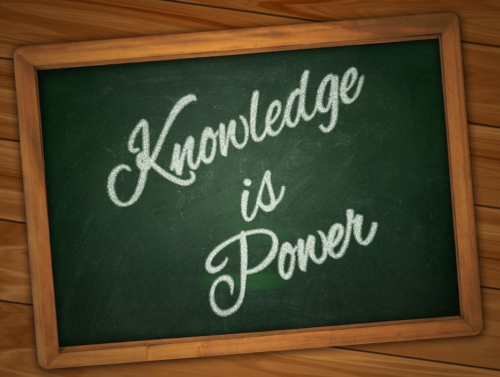How much education does your marketing require?

Let’s think of this in dollars and cents for a moment.
Marketers at Hubspot say they reduced acquisition costs by about $14 per prospect by educating them through quality content. And according to a survey by Aberdeen, companies sharing such content in their marketing pipeline have conversion rates that are up to six times higher.
Is your marketing team up to the challenge?
Our content-guru friends at Litmos Heroes have written about what L&D can learn from marketing but I’d like to turn the tables in this post and ask, “What can marketing learn from L&D?” As marketing sets out to essentially “train” prospects, they’d benefit from pulling a card or two from the L&D deck and thinking with the mindset of course designers. I’d even encourage some formal meetings in which marketing can ask L&D for best practices and guidance on how to structure effective learning content that can be easily accessed, navigated, understood, and retained.
It can appear in the guise of “marketing content,” but if education is your goal, consider the following questions as you create it.
What Are Their Expectations?
When it comes to a superior experience, it is all based on expectations your customers have. That’s why in many business-to-business organizations, there is a natural friction between sales (setting high expectations) and service delivery (not always being able to live up to those high expectations!)
Setting the right expectations means starting before the sale, so it would be wise to get your sales and service teams on the same page to meet and agree upon realistic customer expectations. Employees aren’t mind readers; they can’t deliver on what hasn’t been defined. So, depending on the size of your organization and the locations of your teams, it would be ideal to get them in the same room (physical and/or virtual) for an “expectation setting” session(s). If that’s not possible, customer expectations should at least be documented and discussed. From there, you can truly deliver a superior customer experience, which leads to increased loyalty, reduced churn, and better word-of-mouth marketing for your organization.
How Do You Need to Educate?
Marketing content often jumps from one benefit to the next, hoping the reader will immediately feel the need to buy buy buy! But what if the prospect has no idea WHY they might even need your product or service? Or what if they think, “this is way too complicated to use!”
If that is the expectation before you even have a chance to sell, your pipeline is doomed!
When considering your marketing as part of an educational path, you need to take a step back and step into your potential customer’s shoes. What is she struggling with? This is a totally different question from “what problem does our product solve?”
Educate based on THEM, not YOU
Asking “What problem does our product solve?” assumes a lot about your prospect.
- This assumes he or she has identified the problem.
- This assumes he or she is actively seeking a solution.
- This assumes he or she is willing to invest time and money to solve the problem.
In reality, your prospects might be struggling, but with issues rather than problems.
From her perspective, she might be thinking:
- How can I get (XYZ) done in the time we have?
- What will I be able to do to stand out?
- How will I ever stop doing Y in order to really focus on Z?
For complex sales cycles, education is a huge part of the cycle. But too often it’s focused on your questions, not theirs.
What Are their Real Questions?
Marketing is more than just promoting features and benefits. It’s about meeting needs in advance and setting the stage. To do this, you need to discover what questions your customers are REALLY asking.
Using surveys or focus groups or good old-fashioned phone calls, why not ask your prospects what education they need? There’s the classic “what keeps them up at night” question, but if you are interested in educating your prospects, it’s time to flip the script.
Look and observe. What are they searching for? What topics do well at industry events? What would help them understand your approach and set the stage for them?





